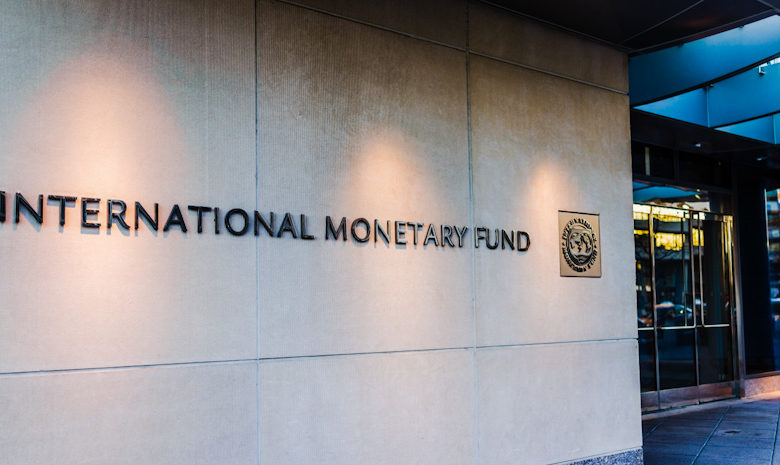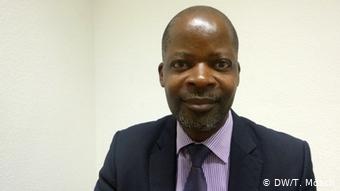Kenyans Petition the IMF Not To Approve More Loans
Kenyans have expressed their displeasure on how the government spends funds received as foreign loans. They took to social media to pass the message to the International Monetary Fund (IMF).

On April 6, 2021, strange things happened in Kenya. As the International Monetary Fund (IMF) and the World Bank Group gathered for this year’s Virtual Spring Meetings, an angry lot of Kenyans online virtually descended on the platforms.
One session, particularly meant to discuss averting a Covid-19 Debt Trap was ‘hijacked’ with protests against perceived irresponsible lending by the IMF.
The session gathered some of the strongest minds in the world of development financing and economics. They included IMF boss Kristalina Georgieva, Vera Songwe, head of the United Nations Economic Commission for Africa and Mohamed A. El-Erian, the President of Queens’ College, Cambridge and chief economic adviser at German insurance giant Allianz. The three, with moderator Martin Wolf probably didn’t see the protest, so they continued with discussions.
Traditionally, the IMF and the World Bank use the Spring Meetings to gather their own experts, central bankers, finance ministers and other policy players to discuss issues of global concern.
Debts at historic high
This year, the concern is how countries across the world can survive and emerge from the Covid-19 pandemic. Another concern is how poor countries can sustain their debts and run government services without ruining their liquidity situation.
Due to Covid-19, the IMF says government debts across the world have reached a ‘historic high.’
In Kenya though, the perception is that the government has not explained well how the money borrowed was used. In fact, it is believed that it was stolen, taking cue from President Uhuru Kenyatta’s recent revelation that Sh 2 billion is stolen daily.
“Stop with the generous loans to Kenya. We are stretched…” a Facebook user posted in a comment, while the IMF’s official Facebook Live webcast was underway.
The 50 minutes discussion received more than 2500 irate comments from Kenyans. They increased after the show, turning it into a subject on Kenya.
The anger had arisen on April 2, 2021 when the IMF said it will lend Kenya some Sh255 billion as part of a programme to cushion the country from the shocks of Covid-19.
The money is to be disbursed in three tranches; Sh 33.7 billion to be released immediately, another Sh 44.2 billion by June 30.
“The balance will be disbursed following subsequent programme reviews conducted approximately every six months,” according to a statement from the National Treasury.
Petition to IMF
But the anger of Kenyans did not start this year. They have expressed their fury over loans from China for many years. However, on April 5, 2021, a Kenyan by the name Jefferson Murrey started an online petition asking the IMF not to give the Kenyan government any more loans.
By April 7, 2020, the petition had garnered more than 200,000 signatures. It states that previous loans to the Kenyan government have not been prudently utilized and have often ended up in mega corruption scandals.
The petition further explains that…..”these scams have not deterred the ruling Jubilee government’s appetite for more loans, especially from China. Right now Kenyans are choking under the burden of heavy taxation, with the cost of basic commodities such as fuel sky rocketing, and nothing to show for the previous loans.”
The petition also points out the recent approval of a luxury car grant to get Members of County Assembly (MCA) to pass controversial changes to the Constitution, punching another hole into an already tight budget.
“Furthermore, the regime has lined up a costly, despite not being urgent, referendum for later this year. The cost of implementing its proposals is estimated at a staggering Sh360 billion annually.” Read part of the petition.
Covid billionaires
It further mentions that some of the President’s close associates have been adversely implicated in the so-called “Covid Billionaires” scam. Billions of shillings from international donors were lost in irregular tenders for Personal Protective Equipment (PPE) at the height of the first wave of the Covid -19 pandemic.
James Shikwati, an economist and Director of the Inter Region Economic Network, is impressed that Kenyans are expressing their views on the loan issue.
Speaking to RoGGKenya, he said that Kenya is going back to the 1980s where donors dictated how the country is run.

“It’s an ongoing conversation, IMF is in business and they are not interested in the ethics of the process,” said Shikwati.
IMF routinely gives loans to countries in crisis, or facing crises, to cushion them with necessary liquidity. For Kenya, the anger is in the rising debts. Critics argue that Kenya’s debt is rising way too fast. The county’s debt stands at Sh7.1 trillion, having risen by Sh5.1 trillion in just five years, according to data from the Central Bank of Kenya.
There has been poor communication on just how much of this money was put to proper use. And even a spirited explanation from the National Treasury that the money was meant to enhance continuity in government services was not believable.
Politicisation of corruption
Shikwati, however, warns that the danger goes beyond loans issued by the IMF. ”We politicize all sectors. Politicians use corruption to get back at each other. As a result, the criminality part of it vanishes.”
The economist added that the petition risks getting politicised and the war against corruption can only be won if corruption is treated as a criminal act.
“That is why the president announces that Ksh 2 billion is stolen every day and the story just becomes who is stealing. If we had a functioning parliament they would have picked the momentum. But as usual, we have selective politics.”
The IMF loans are better for Kenya, compared to opaque commercial loans from Chinese lenders. But the IMF has its own drawbacks.
When it announced the money, the Fund said of the Sh255 billion loan: “The Fund-supported programme will also advance the broader reform and governance agenda, including by addressing weaknesses in some State-Owned Enterprises (SOEs) and strengthening transparency and accountability through the anticorruption framework.”
Consequences of the loan
David Ndii, an economist in Nairobi, argued the conditions attached to the loan mean Kenyans will suffer more, including higher tax levies.
“The IMF loan that Kenya has taken is called a Structural Adjustment Programme (SAP),” he explained.
“It comes with austerity (tax raises, spending cuts, downsizing) to keep Kenya creditworthy, so that we continue borrowing and servicing debt. The IMF is not here for fun. Ask older people.”
That the IMF made the announcement just two weeks after a national protest on fuel price increases angered more. But the crucial question, some said, was that Kenyans should direct their anger to their own government for misappropriation.
The IMF is also remembered for its cruel economic conditions the last time it provided survival lending to Africa. Under the SAPs, it forced many countries, including Kenya, to reduce subsidies, reduce the economic involvement of the government and focus on efficiency and good governance.
As a result, people lost jobs. In Kenya, extension officers [agricultural officers, who were deployed to rural areas to educate masses on soil conservation and proper breeding] for instance, were deemed unnecessary government workers, after the IMF suggested the services could be privatised.
Higher taxation
For Kenya, it will mean heavier taxation from a smaller pool of tax payers. According to the Kenya Revenue Authority, just about 3.6 million Kenyans have registered to pay taxes, about a sixth of the number of registered voters in the country.
“As a matter of fact, eradication of poverty is not an objective of these programmes, and it is not a surprise that they impact quite adversely on the poor,” says a paper on the 1990s’ SAPs in Kenya.
“The serious problems of under-development that this country sought to overcome using these strategies remain, with the levels of inequality and the incidence of absolute poverty increasing. In Kenya, poverty remains a major problem.”
As this type of criticism on IMF is a new ground even for the Fund, how it reacts could be useful in determining whether it is simply throwing money at bad policy.
A detailed statement, the Fund released on Kenya’s loan, suggested the country was at “high risk” of debt distress, but said Nairobi had already abandoned expensive loans to manage debt sustainability.
Criticism via Facebook may unlikely move the IMF. But it usually has an Independent Evaluation Office meant to determine any mistakes in lending. Some critics though argue the IMF’s own tradition of ‘impunity’ have made the office a lame duck .
What journalists should do:
- Follow up and track, how the government of Kenya will spend the Ksh 255 billion loan by the IMF.
- Talk to the IMF monitoring teams to understand how they will supervise how the money is used.
- Cover debates, protests or criticism against foreign debt.
- Analyse the conditions that the IMF has given Kenya, in order to get loan and how they will affect Kenyans.
- Talk to economists to get their perspective on foreign loans.
- Check our LIST OF EXPERTS for this and other topics.
By Aggrey Mutambo and Carolyne Oyugi
appropriate content, i love it